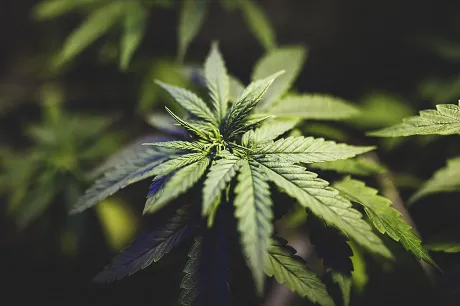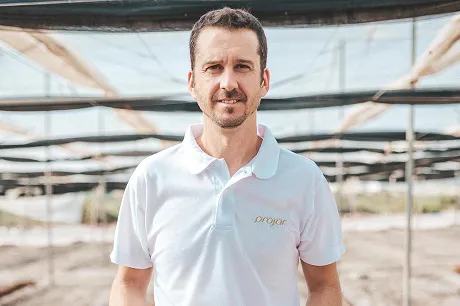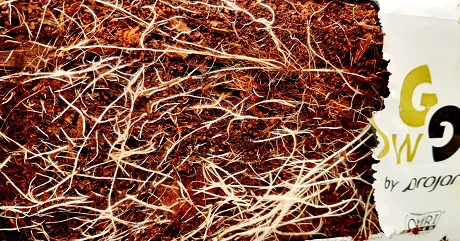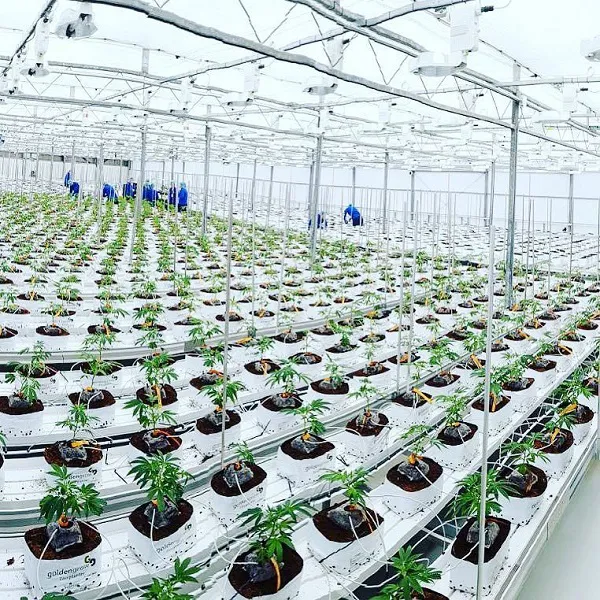There are many things to take into consideration when it comes to selecting the ideal substrate for your cannabis cultivation. The substrate is truly instrumental to achieve a high-quality crop, which explains why it is of utmost importance to choose the right one carefully. The most used substrates in cannabis cultivation are coco coir and rock wool. Choosing one option or another will define a specific cultivation method, as well as the productive result that will be obtained from the plant in the following phases. Both of these have their pros and cons, but only one of them is definitely superior to the other.

It has been noted how an increasing number of growers are switching from rockwool to coir fiber in soilless cultivation, often mentioning the more competitive price of the latter as determining factor. But there are more reasons to prefer coco coir over rockwool.
Little room for mistakes
Compared to more ‘traditional’ crops, cannabis is way less forgiving, and the room for mistakes is close to non-existent. “When rockwool is used, growers need to be extra careful and precisely control the irrigation and climate parameters. If an error occurs, then the chances of irreversible damage to the crop increase exponentially. On top of that, also nutrients need to be dosed perfectly: rockwool is an inert material, and as it such does not have any buffering capacity”, says Juan Manuel García, Product Manager and Technical Advisor at Projar, leader in coco coir production.

The other issue with rockwool stems from environmental concerns. Rockwool plugs need to be purchased again every time a new cycle starts, which also means that the used plugs will have to be disposed of somehow. This is quite a burden for growers as they need, on the one hand, to set up each individual plug, and on the other hand, to dispose the used plugs, which can be quite costly, both from a financial and an environmental standpoint.
Benefits of coir fiber
Coir fiber is inherently organic and has a buffer capacity that allows growers to correct mistakes without causing irreparable damages to the crop. At the same time, there might be some differences in terms of yield between coir fiber and rockwool. These can however be bridged if the coir fiber is of the highest quality. And it is exactly here that Projar, and its Medical Trust Certification program, comes into play. “Being manufacturers allows us to develop and test new customized solutions to the needs of each grower and the type of production of it” comments García.

Projar is one of the largest providers of cannabis cultivation systems globally, with more than 35 years of experience in the agricultural and horticultural market. The company has leveraged its experience to develop a certification that guarantees that the coconut fiber products comply with the strict standards of medical cannabis cultivation.
Thanks to this, growers can be sure that utilizing Projar’s coconut fiber allows them to express the full genetic potential of their cannabis varieties. “By utilizing such Med Trust certified high-quality substrates, cannabis plants will experience less stress thanks to increased water and nutrient uptake, and an increased oxygen availability caused by the porosity of the coconut fiber. On top of this, because of the organic quality of the coco fiber, the thermal inertia of such a substrate will increase the temperature stability of the roots zone”, explains García.

As cannabis cultivation, especially indoor, has become one of the crops with the highest levels of excellence in crop’s management, it’s extremely important to be advised by experts in this agronomic field. "The coconut fiber guarantees a correct and rapid initial development of the root system by ensuring optimal aeration of the roots, thanks to its great water retention capacity and high porosity. This facilitates the development of absorbent root, improves nutrition and the health of the plant”, tells García. "Projar offers personalized advisory service to the cultivation areas before and during the cultivation phase to ensure that the solutions adopted meet the client's expectations."
Thus, coco coir substrates are a way for growers to achieve high quality crops, while reducing the operational cost and being environmentally conscious.
Discover Projar’s coco coir technical information and how they can increase your crop productivity for cannabis production at this link bit.ly/2PiyJMB
For more information:
Projar
projarcanna.com
